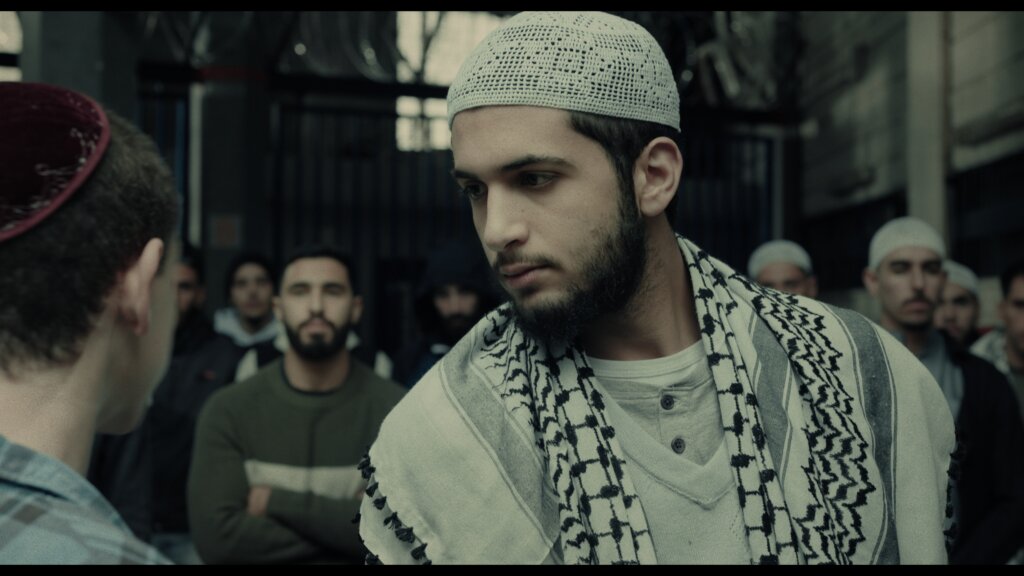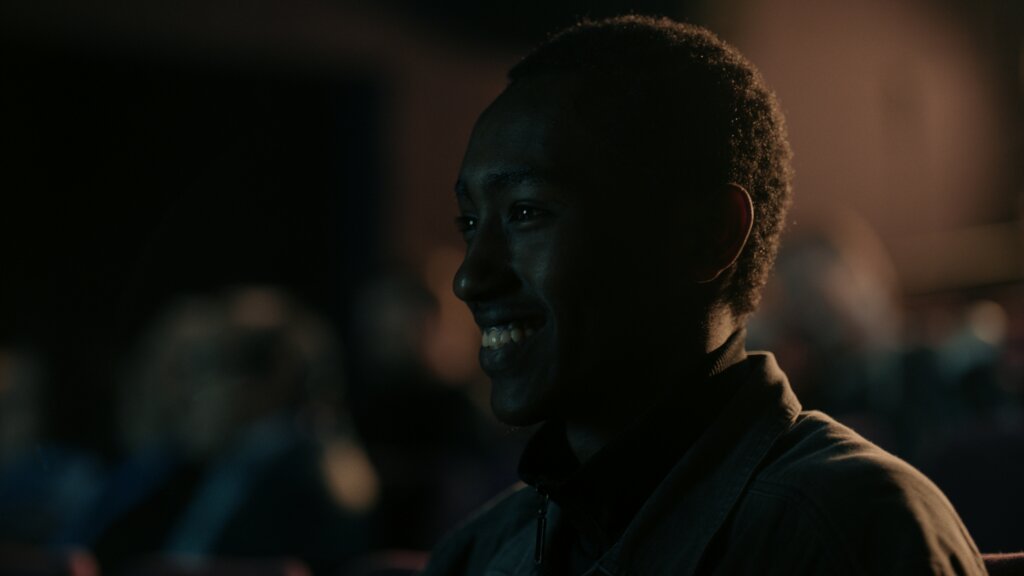Dean Shayman in his mugshot. Photo by Sipur/North Road
The newest Israeli show to hit Netflix is not about the Israeli-Palestinian conflict, or Haredim, or the Mossad, or even everyday life in the holy land. Instead, Bad Boy follows a group of boys at a juvenile detention center outside of Tel Aviv as they navigate their family relationships, their friendships and the trauma that got them thrown in jail in the first place.
The topic matter is nothing new for Ron Leshem, who created Euphoria, the show about high schoolers doing drugs and having sex that HBO went on to buy and adapt into the smash hit starring Zendaya; Leshem seems drawn to tales of wayward adolescents. The showrunner worked with Daniel Chen, to create Bad Boy, based on Chen’s real life experience in juvenile detention centers throughout his youth.
But it’s a less obvious pick for Netflix which, along with other streaming platforms, has routinely picked up Israeli shows or adapted them into English-language versions. While in the past, some of these shows have included less obviously Israeli plots — think In Treatment, about a therapist, or On the Spectrum, about autism — in more recent years, the streamers have generally preferred shows that are more distinctly Jewish, perhaps thanks to the surprisingly large audiences shows like Unorthodox and Shtisel drew.
In Bad Boy, however, besides the language, there’s little to make it feel particularly, well, Jewish. Except, perhaps, the show’s frame: turning trauma into humor, as is longstanding Jewish tradition.
The show follows Dean Shayman, who is thrown in jail on a number of charges — drug dealing, violence — as a young teen. As an adult, however, Dean (played by Chen) has gotten out of jail and built a successful career as a standup comic, on the back of his stories about prison. Each episode cuts back and forth between adult Dean’s comedy sets, set in the modern day, and the less humorous realities his bits are based on, during his adolescence in the 90s: dealing with his unstable mother, stabbing another boy, getting beaten up by a prison official.
Bad Boy offers a compelling portrayal of the traumas that brought Dean, and his fellow teen boys, to prison and the choices they struggle with while there; the teens are, by turns, clever, funny and deeply broken. Still, these are largely issues that could take place in any prison: how to navigate the prison’s internal hierarchies, who to befriend, whether to rat and perhaps get an early release or instead to keep the secrets of your fellow inmates — and your honor. And it’s a story that has been told before, whether in Orange is the New Black or The Shawshank Redemption.

There are a few details that make the show distinctly Israeli: There’s tension between the observant Jews and a group of religious Arab teens in the prison yard. Dean’s cellmate, with whom he eventually becomes extremely close, is an Ethiopian boy named Zorro who the other inmates are all terrified of. One of the boys has a religious awakening and puts up posters of various rabbis all over his cell’s walls.
But the spat between the Jews and the Muslims in the prison yard isn’t a storyline so much as a brief set-up for Dean to escape his cell block during the distraction of the ensuing fight. The impact of Zorro’s race is never more than subtext; beyond the occasional racist jeer, the boys’ perception of Ethiopians is never explored.
To an Israeli audience, these details might feel deft; when the audience is deeply familiar with the culture and prejudices in question, all you need is a subtle nod to evoke a whole world of issues. But for Americans, less aware of the subtleties of Israeli society, they register as little more than set dressing. Whole aspects of various characters are never given attention. Themes are thrown out without getting developed.

The show has other flaws as well; the frame of the comedy set, jumping back and forth between riffs on stage and moments in the past, can prevent storylines from developing fully. And the producers made an odd choice to include the occasional animated detail — a cartoon puff of smoke from a character’s mouth, tweeting birds circling the head of someone knocked out — for no apparent reason. (The animations are infrequent, not even occurring every episode.) The jokes Dean makes as an adult comic are often inside references that Americans might not understand, or find funny; some of them seem racist.
Where Bad Boy excels is in its exploration of young, male relationships. Zorro, Dean’s cellmate, murdered a young girl and received a sentence far longer than that of any of the other boys; already dismissed by everyone else in prison, he has given up on making friends who would leave in just a few months. But Zorro eventually opens up with Dean, who becomes so attached to him he tries to get put back in prison. The delicate love they share, which defies the usual categories of romantic or platonic, is beautifully drawn, shaped by the subtleties of class and race in Israel, and the way it shapes each of their lives is more compelling than any of the machinations of prison.
This makes Bad Boy a tough show to categorize; it’s not for those who watch Israeli TV to stay up on Jewish culture, nor is it a fun crime drama about tough guys in prison. It doesn’t get into political tensions or even the way modern culture corrupts teens. (After all, it’s set in the 90s; all the dangers the boys encounter are beyond outdated.)
Instead, Bad Boy is a show about young boys figuring out what love is. That’s been enough for it to sweep the Israeli Television Academy Awards, where it won in seven categories. But whether that’s enough to succeed on Netflix remains to be seen; even with the subtitles, it’s not clear if it can translate.

I hope you appreciated this article. Before you go, I’d like to ask you to please support the Forward.
Now more than ever, American Jews need independent news they can trust, with reporting driven by truth, not ideology. We serve you, not any ideological agenda.
At a time when other newsrooms are closing or cutting back, the Forward has removed its paywall and invested additional resources to report on the ground from Israel and around the U.S. on the impact of the war, rising antisemitism and polarized discourse.
This is a great time to support independent Jewish journalism you rely on. Make a gift today!
— Rachel Fishman Feddersen, Publisher and CEO



















